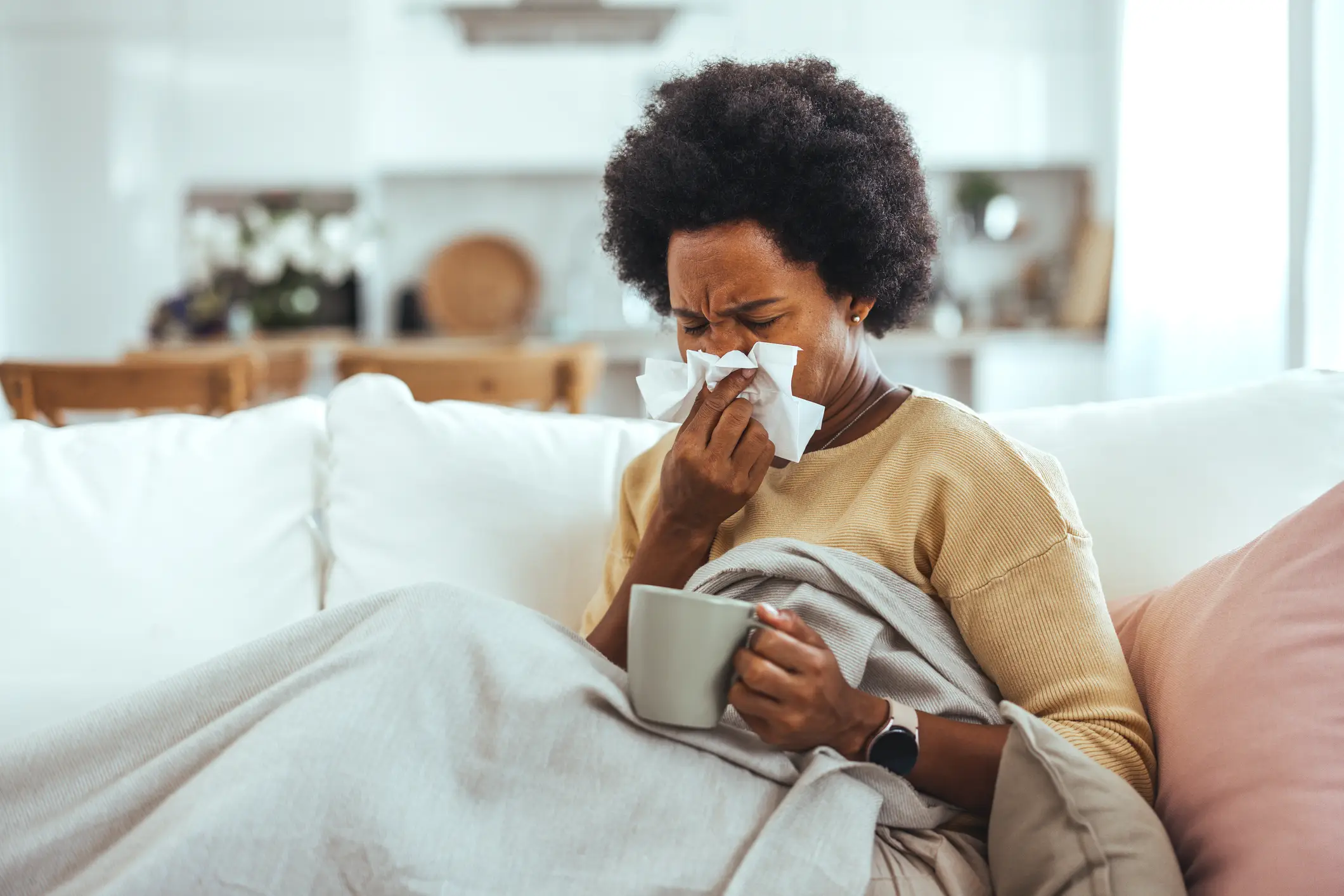
Coughs echoing round the office, sniffles in your ear on the train and sneezes being set off around the shops, it feels like everyone’s down bad with something at the moment.
But when you wake up feeling like you’re absolutely full of it, you might not be so sure what exactly it is that's taking a battering at your health.
So, as Brits come down with a brutal illness at an alarming rate, a doctor has shared the key difference between a cold and the flu.
It was reported earlier this month that the UK was facing a ‘quad-demic’ this winter with the flu, Covid-19, respiratory syncytial virus (RSV) and norovirus putting extra pressure on the NHS.
Advert
Well, let that be a reminder to get yourself a flu vaccination if you can as a preventative measure to avoid getting ill.

Flu vs cold: What's the difference?
Doctor Xand van Tulleken explained on BBC Morning Live the one major difference when it comes to the flu versus a cold, even if you might think they feel similar.
He said that a ‘cold will come on a little more slowly’ and typically hits the upper respiratory tract.
So, you might be experiencing an annoyingly sore throat and be bunged up with snot and nasal congestion.
“But flu will drop you like a sack of bricks. Flu is a different experience,” he said. “A cold you can keep functioning, it’s miserable, it's no fun, but flu can be life-threatening.”
Unlike a cold, the flu tends to come on quite quickly and is a ‘whole systemic illness’.
Dr Tulleken says to be aware of ‘muscle pains, severe muscle soreness, weakness, exhaustion and being short of breath’. The flu can also cause confusion and make any other health conditions you have worse.
“So the big distinction basically,” he added, “flu is the really bad one.”

How to treat the flu yourself
Usually, the flu will just get better on its own and there are simple things you can do to help that happen more quickly.
The NHS recommends trying to get as much rest and sleep as possible and keeping yourself warm.
You can take paracetamol or ibuprofen to help bring your temperature down and soothe the symptoms of aches and pains.
As always, it’s important to drink plenty of water to avoid dehydration.
When to get help for the flu
If you find your symptoms particularly difficult to put up with, a pharmacist can give treatment advice and recommend flu remedies.
In some cases, the flu can make people seriously ill and you should ask for an urgent GP appointment or get help if you’re 65 or over, pregnant, have a long-term medical condition, have a weakened immune system or your symptoms don’t improve after seven days.
You should call 999 or go to A&E if you get sudden chest pain, have difficulty breathing or start coughing up a lot of blood.